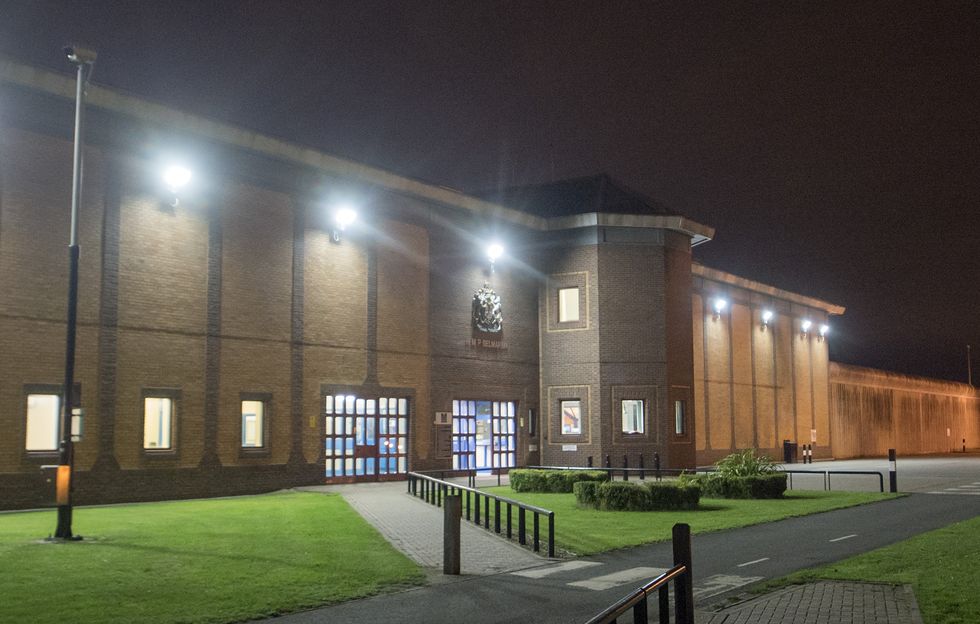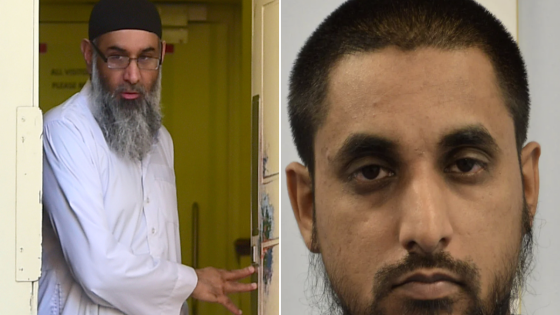An associate of Anjem Choudary received £1,300 in compensation after he complained about a prison strip search.
Convicted terrorist Mizanur Rahman, 41, accepted an out-of-court settlement over the incident at Belmarsh prison that he described as being tantamount to “human rights abuse”.
Anjem Choudary and Mizanur Rahman
PA/Reuters
Asked about his compensation, Rahman said: “I don’t want to go into the details. They admitted to it and they settled out of court after a long, long legal battle.”
Rahman had argued that he believes he was “targeted as an extension of hatred” towards Choudary. He said: “Wherever he went, I got caught in that crossfire.”
Professor Anthony Glees, an intelligence expert from the University of Buckingham, said Rahman should not have been compensated as strip searches “are standard procedure, especially in cases like this.”
The Ministry of Justice told The Sun: “We only settle when it’s in taxpayers’ interest.”
LATEST DEVELOPMENTS

The incident took place at HMP Belmarsh
PA
Mizanur Rahman used online sermons to accuse Israel of genocide in Gaza and insist abortion is prohibited by Islam. Meanwhile, Choudary is likely to be held in an anti-extremism unit to stop him radicalising inmates as he embarks on a life sentence behind bars for running a banned terrorist organisation.
As he was sentenced on Tuesday, the judge told Choudary he must serve every day of the minimum term he set behind bars before he can apply for parole, by which time he will be at least 85 years old.
The Parole Board will then decide whether he is safe to be released, but “I cannot envisage them reaching such a decision without the most cogent evidence of a change of mindset by you. If they never form the view that you can safely be released, you will remain in prison for the rest of your life”, Mr Justice Mark Wall said.
Separation centres were set up in 2017 as part of the then-government’s bid to clamp down on extremism behind bars, with the plans gathering pace after a review warned Islamist extremism was a growing problem in England and Wales’ prisons.
The latest available Home Office figures show that, as of September last year, there were 246 terrorist offenders in British prisons.
The majority of which (65 per cent) held Islamist-extremist views.
Just over a quarter (26 per cent) were categorised as holding extreme right-wing ideologies while nine per cent were considered to hold “other” ideologies.
Source Agencies


